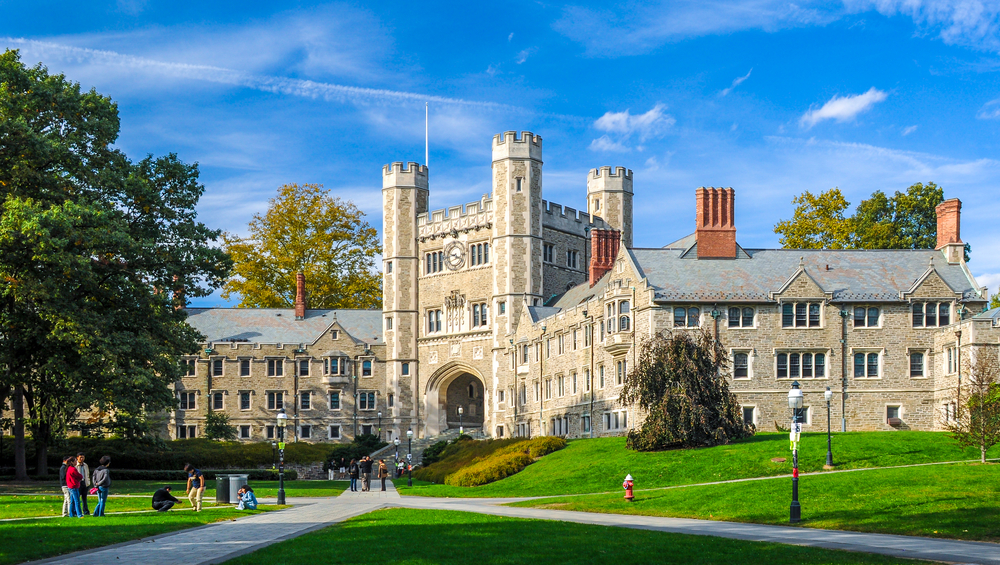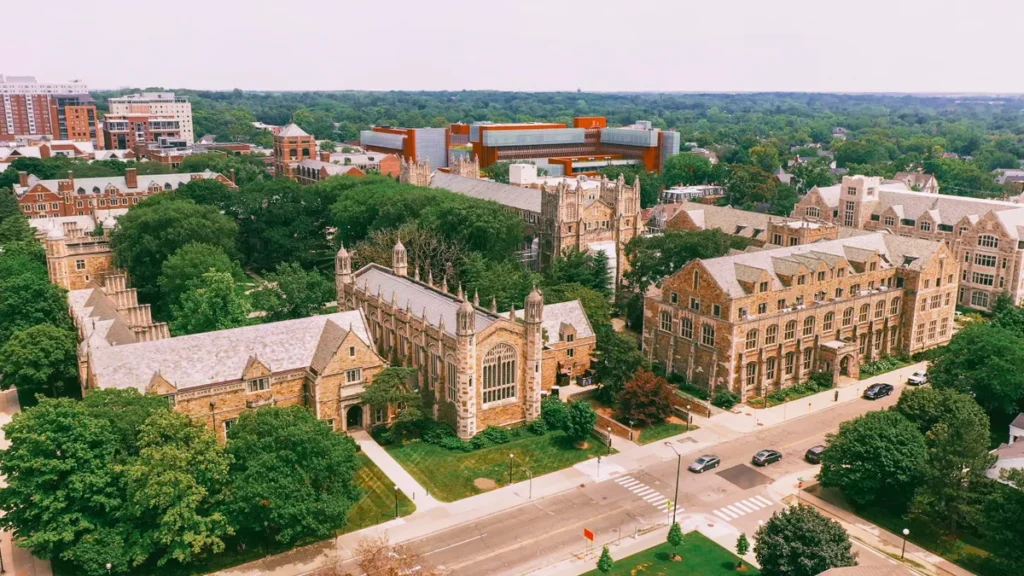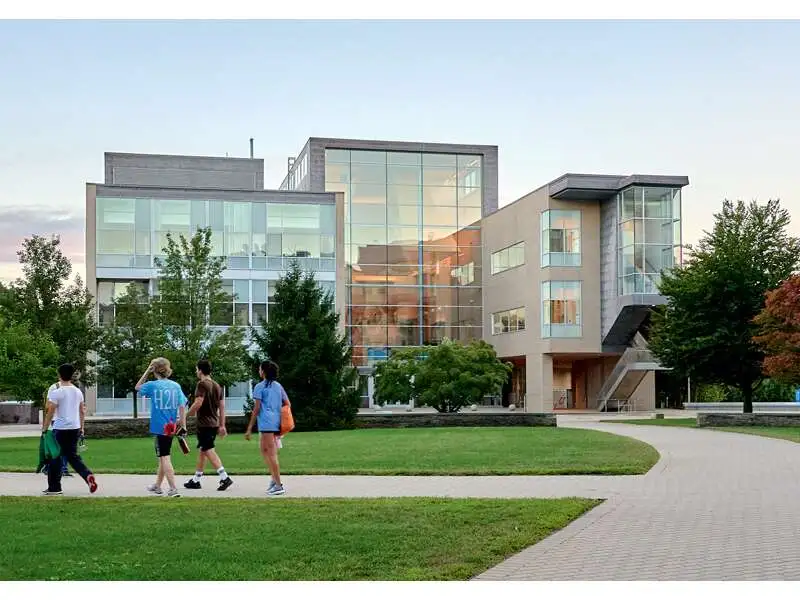Choosing the right engineering school can launch your future as an innovator, leader, or tech entrepreneur. Why Study Engineering in the U.S.?
Engineers are driving the most significant innovations in everything from renewable energy and artificial intelligence to infrastructure and healthcare. The United States is home to many of the world’s leading engineering universities, offering cutting-edge research, global career opportunities, and an unmatched return on investment.
The US boasts several of the world’s top-ranked engineering universities, each offering unique strengths. In this article, we’ll explore the top 10 engineering schools in the U.S. for 2025, highlighting their strengths, specialties, and why they stand out.
1. Massachusetts Institute of Technology (MIT) – Cambridge, MA

Why MIT?
MIT has an unparalleled reputation for innovation and research. Its engineering programs offer access to top-tier facilities, interdisciplinary collaboration, and robust ties to industry leaders and tech startups. Students graduate highly employable, ready for leadership roles in any engineering field.
- Why it stands out: Consistently ranked #1 worldwide, MIT dominates across almost every engineering discipline.
- Specialties: Computer science, electrical, aerospace, and chemical engineering.
- Highlight: Unmatched innovation ecosystem with ties to industry leaders.
2. Stanford University – Stanford, CA

Why Stanford?
Stanford is located in the heart of Silicon Valley, providing countless internships and project opportunities with leading tech firms. Its faculty are leaders in advanced engineering disciplines, and the entrepreneurial culture makes it perfect for students who want to launch startups or engage in groundbreaking research.
- Why it stands out: Located in the heart of Silicon Valley, Stanford is a hub for technology and entrepreneurship.
- Specialties: Software engineering, AI, robotics, and sustainability.
- Highlight: Close ties to tech startups and global innovation networks.
3. Harvard University

Why Harvard?
Harvard excels due to its strong research environment, international outlook, and access to multidisciplinary resources. The engineering school fosters innovation in biotech, robotics, and renewable energy while maintaining high teaching and research quality.
4. University of California, Berkeley
Why UC Berkeley?
Famed for its rigorous curriculum and collaborative environment, UC Berkeley’s College of Engineering is consistently ranked among the top for technology and innovation. Graduates often secure employment in leading global tech firms.
5. California Institute of Technology (Caltech) – Pasadena, CA

Why Caltech?
Caltech is known for intense research focus, small class sizes, and faculty-student collaboration. It’s heavily involved in national and international engineering and scientific breakthroughs, preparing students for highly technical fields and future doctoral studies.
- Why it stands out: A small but elite powerhouse, perfect for students seeking research-driven learning.
- Specialties: Aerospace, mechanical, and materials science.
- Highlight: Exceptional faculty-to-student ratio ensures close mentorship.
6. Princeton University Princeton, NJ

Why Princeton?
Princeton offers highly selective, research-driven programs with a focus on fundamental engineering principles. Its beautiful campus, elite faculty, and generous funding opportunities make it a great destination for academic excellence.
- Why it stands out: Combines liberal arts excellence with cutting-edge engineering.
- Specialties: Civil, mechanical, and electrical engineering.
- Highlight: Interdisciplinary approach to solving global challenges.
7. Georgia Institute of Technology (Georgia Tech) – Atlanta, GA

- Why it stands out: One of the strongest public engineering schools with industry-ready graduates.
- Specialties: Civil, industrial, and mechanical engineering.
- Highlight: Strong partnerships with Fortune 500 companies.
Why Georgia Tech?
Georgia Tech is a leader in producing workforce-ready engineers, renowned for co-op and internship opportunities. It maintains strong corporate partnerships and is known for innovation in areas like aerospace, biomedical, and computer engineering.
8. Johns Hopkins University (JHU) – Baltimore, MD

- Why it stands out: The world’s best biomedical engineering program.
- Specialties: Biomedical, chemical, and electrical engineering.
- Highlight: Strong research integration with Johns Hopkins Medicine.
9. University of California, Los Angeles (UCLA)

- Why UCLA?
UCLA’s Samueli School of Engineering is recognized for research in AI, nanotechnology, and environmental engineering. It’s a multicultural hub with a strong connection to southern California’s thriving tech scene.
10. Yale University

- Why Yale?
Yale’s engineering program is selective, emphasizing hands-on and interdisciplinary learning. Its modern approach prepares students for careers at the intersection of engineering, science, and public policy.
11. University of Michigan, Ann Arbor

- Why UMichigan?
UMich boasts extensive research facilities, a powerful alumni network, and high recent graduate placement rates. Its College of Engineering is known for automotive, robotics, and energy systems research.
- 12. Carnegie Mellon University (CMU) – Pittsburgh, PA

- Why it stands out: Globally recognized for robotics, AI, and computer engineering.
- Specialties: Computer science, robotics, and cyber-physical systems.
- Highlight: A leader in advanced computing and automation.
13. Columbia University – New York, NY

- Why it stands out: An Ivy League engineering school in the heart of New York City.
- Specialties: Civil, chemical, and computer engineering.
- Highlight: Access to internships and industry connections in NYC.
14. Cornell University – Ithaca, NY

- Why it stands out: A leader in nanotechnology, mechanical, and materials engineering.
- Specialties: Computer engineering, nanoscience, and mechanical engineering.
- Highlight: Strong research facilities and diverse program options.
15. Duke University – Durham, NC

- Why it stands out: Blends strong engineering with liberal arts and research excellence.
- Specialties: Biomedical, mechanical, and environmental engineering.
- Highlight: A top choice for students seeking research with real-world impact.
16. Hidden Gem: Olin College of Engineering – Needham, MA

A small, innovative college dedicated solely to engineering. Every admitted student receives a half-tuition scholarship, making it one of the most affordable yet prestigious engineering programs in the country.
Best Engineering Specialties in the U.S.
- Aerospace Engineering
- Top Schools: MIT, Stanford, University of Michigan
- Biomedical Engineering
- Top Schools: Johns Hopkins, Duke, MIT
- Computer Engineering
- Top Schools: MIT, Stanford, Carnegie Mellon
- Mechanical Engineering
- Top Schools: MIT, Stanford, University of Michigan
Admissions Tips for Aspiring Engineers
- Excel in Math and Science – High SAT/ACT math scores are crucial.
- Take Advanced Courses – Prioritize AP/IB classes in physics, chemistry, and computer science.
- Show Your Engineering Passion – Participate in science fairs, robotics teams, coding competitions, or independent projects.
- Craft a Strong Application – Highlight your “spike” (specialized passion or achievement in engineering).
My Final Thoughts
Choosing the right engineering school depends on your career goals, budget, and preferred specialty.
While MIT, Stanford, and Caltech dominate globally, public universities like Georgia Tech and Michigan offer excellent value and industry connections. For biomedical innovators, Johns Hopkins is unmatched.
No matter your path, the U.S. offers an engineering education that leads to innovation, leadership, and global opportunities.
FAQs
Which U.S. university is best overall for engineering?
MIT holds the #1 spot across most global rankings.
What if I want to focus on biomedical engineering?
Johns Hopkins is the world leader in biomedical engineering.
Which public universities are strong in engineering?
Georgia Tech, the University of Michigan, and UC Berkeley are top public options.
Why Study Engineering at These Top US Universities?
- World-Class Education: These schools are consistently at the top of global rankings thanks to expert faculty and advanced facilities.
- Research Opportunities: Students access pioneering research across diverse engineering fields, often working on major funded projects.
- Industry Connections: Partnerships with leading corporations open the door to internships, networking, and job opportunities right after graduation.
- Financial Support: Many offer scholarships, grants, and assistantships to help with costs.
- Entrepreneurial Ecosystem: Especially in places like Stanford and MIT, students are encouraged and supported to innovate and launch startups.
- Global Exposure: These universities attract brilliant minds from around the world, ensuring students learn alongside future innovators.
Conclusion
The US remains a global leader in engineering education, providing unparalleled opportunities for aspiring engineers. Whether you value entrepreneurship, research, or a diverse academic community, the universities listed above will help you excel in your chosen engineering field.
For more insights, always review the latest rankings and connect with current students or alumni to find your best fit!




